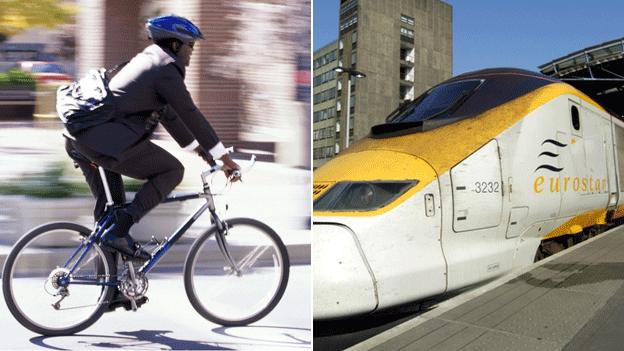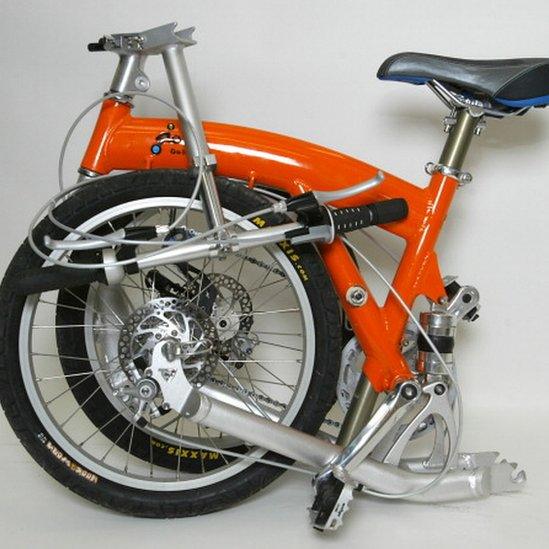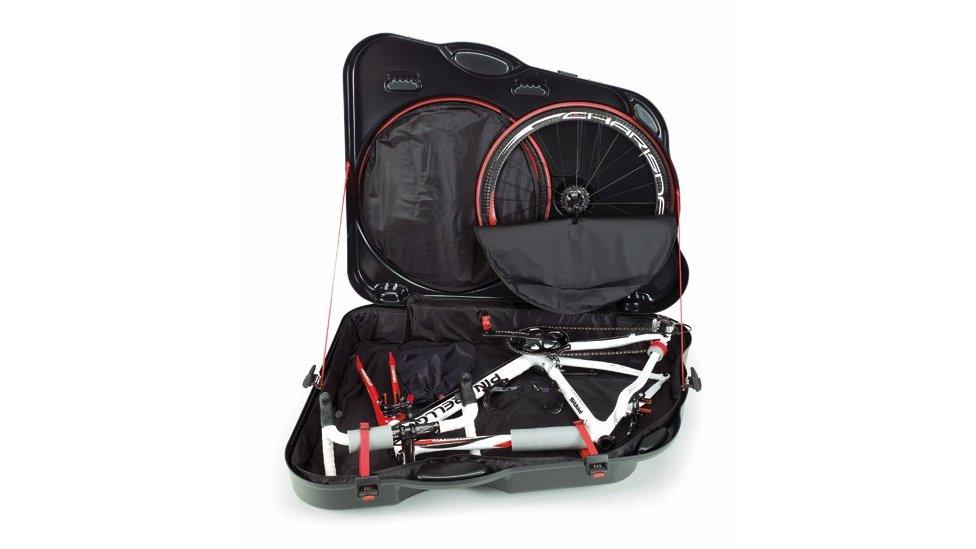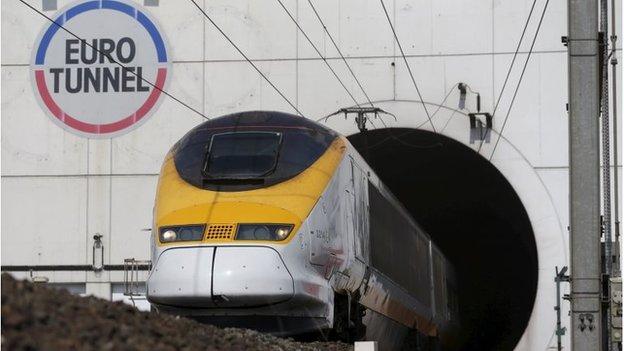Eurostar's new bike storage policy attracts criticism
- Published

A planned change in the way Eurostar stores bikes for travel has led to claims it is treating cyclists like "third-class passengers".
Cycling charity CTC made the accusation after the cross-Channel service said it would be storing bikes from 1 November in what is known as a "bike box" - meaning the bike has to be dismantled.
The change would discourage cyclists from using Eurostar, the charity said.
But Eurostar said the new storage method used space more efficiently.
"The only change is that bikes will now need to be carried in a bike box, which we are happy to provide," a Eurostar spokesman said.
"When packaging bikes in this way, they take up less space which means that we can carry more bikes, or any other type of luggage."
'Too difficult'
Currently cyclists can take a bicycle on board and pay a £30 fee for it to be carried via a registered luggage system. The bike is hung on a storage rack by its tyres, and Eurostar estimates that at the moment they have the capacity to take around eight bikes per train.
But from 1 November cyclists will have to dismantle their bikes to put them into a box and reassemble them when they reach their destination.
Eurostar said its staff would be on hand to help cyclists getting bikes into the boxes, and it would accommodate any size bike box if cyclists wanted to bring their own.

What are the rules for bringing bikes onto other public transport?

Most transport companies allow folding bikes onto their services
Transport for London (TfL) allows folding bikes on all of its London Tube services but only permits non-folded bikes at some stations, external.
On its buses, folded bikes are allowed at the "driver's discretion".
Train companies' policies on bikes vary: Virgin Trains requires customers to reserve a space for non-folded bikes, while Southern prohibits non-folding bikes on some of its rush-hour services.
Coach companies National Express and Megabus only allow folded bikes, while Stagecoach allows non-folding bikes on a limited number of services.
Airlines tend to permit bikes but usually require them to be packaged in a box or bag and often charge a fee.


Eurostar says bike boxes are a more efficient way of transporting bicycles
But CTC chief executive Paul Tuohy argued dismantling the bike - including taking wheels off - would be "too difficult" for some riders.
He said: "There is nothing sustainable about this policy, as it actively discourages the people we want to see cycling more from using what is otherwise a fantastic service.
"For the new cyclist, or those who rely on cycling as a mobility aid, dismantling and reassembling a bike for transit is too difficult.
"With London, Paris and Brussels each vying to be top cycling cities, and Amsterdam, arguably Europe's cycling capital, due to join the Eurostar network in 2016, now is not the time to take a step back in cycle rail policy.
"Cyclists should not be treated as third-class passengers, and we urge Eurostar to reverse their planned policy."
'Strong fingers'
The European Cyclists' Federation (ECF), which represents cycling bodies across the continent, described the new policy as "extremely inconvenient" in a letter to Eurostar chief executive Nicolas Petrovic.
The ECF added: "We understand that there is a limited space for baggage on the trains but it should be allocated on a first come, first served basis. We would therefore request that the current policy of allowing the carriage of complete bicycles is retained."
Rosemary Dooley, 68, from Kendal, Cumbria, who recently went to Portugal for a cycle holiday, said: "I have to take my own bike everywhere due to arthritis in my hands - hence small adaptations.
"I am also not mechanical but it seems now that I will have to learn to remove and replace the front wheel. I just hope it doesn't involve strong fingers."
CTC is urging members of the public concerned about the planned changes to write to the train operator.
A study commissioned by the European Parliament in 2012 found that there are 2.3 million cycle tourism trips in the EU every year.
- Published21 July 2015
